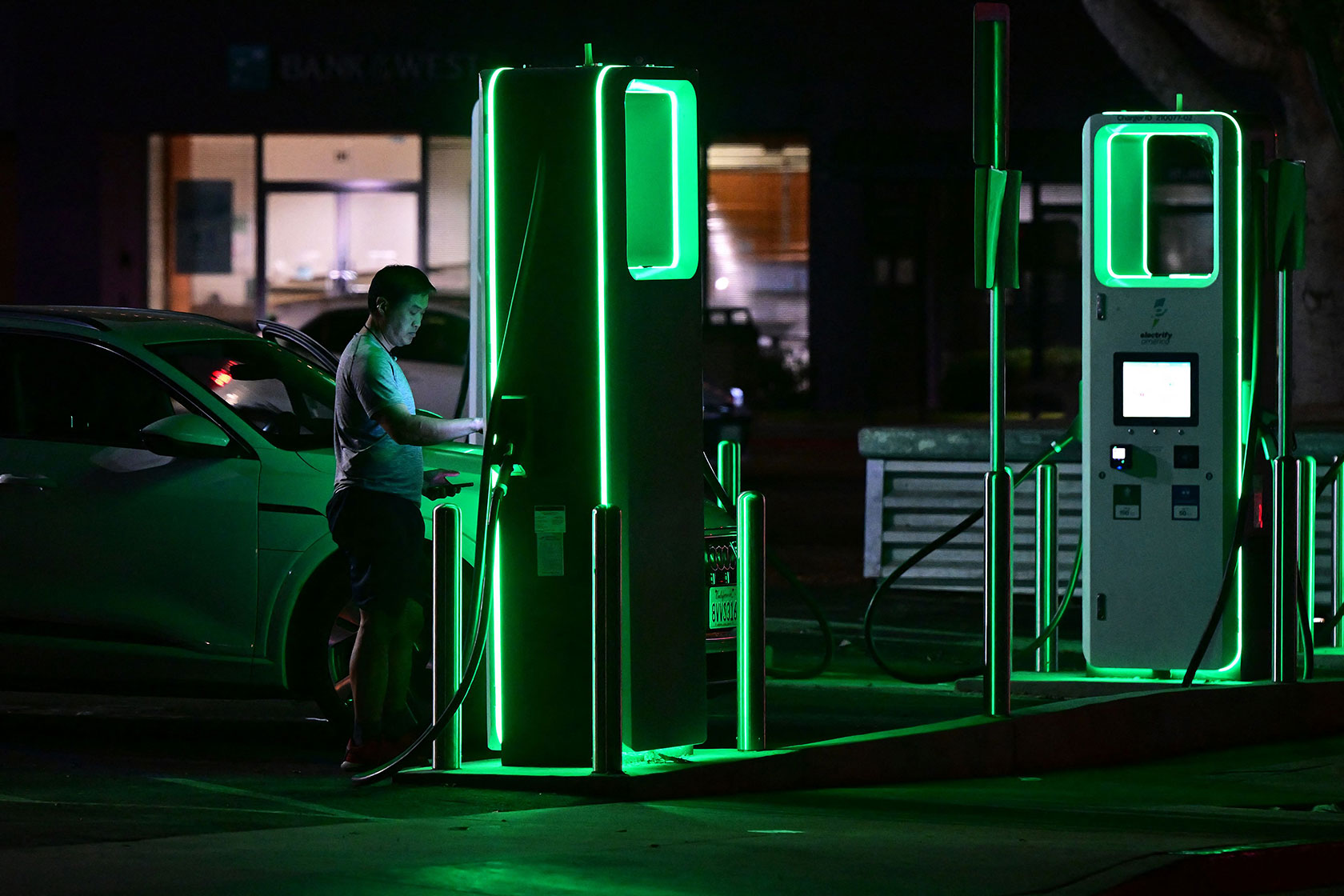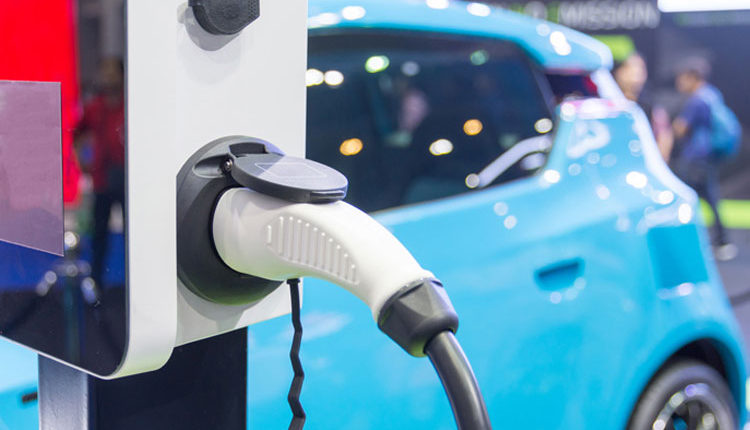New Advancement in EV Charging: How the Sector Is Progressing to Fulfill Demand
As the electric car (EV) market proceeds to expand, the charging framework is going through substantial improvements to deal with the rising demand. The effects of these developments raise vital concerns regarding the future of EV billing and its duty in the wider power community.
Development of Charging Infrastructure
The quick expansion of electric vehicle (EV) billing infrastructure is a vital part in helping with the prevalent adoption of electric mobility. As federal governments, private business, and customers significantly acknowledge the value of lowering carbon discharges, investments in charging networks have surged. This infrastructure development is necessary to alleviate array anxiousness, making certain that EV customers have practical accessibility to billing terminals.
Considerable innovations accountable station innovation and implementation methods have actually arised. Urban locations are seeing a proliferation of public charging terminals, while country regions are gradually being integrated right into the charging network. Collaborations between automotive manufacturers and charging companies are coming to be more usual, facilitating the facility of extensive networks that improve customer experience and accessibility.
In enhancement, the combination of renewable power resources into billing terminals is acquiring energy, advertising sustainability in the EV ecological community. This transition not just sustains ecological goals yet likewise aligns with the rising demand for eco-friendly power solutions amongst customers.
Ultra-Fast Charging Technologies
Ultra-fast charging modern technologies represent a substantial leap forward in the EV billing landscape, enabling electrical cars to recharge in a fraction of the moment contrasted to standard billing techniques. These advancements normally deliver power levels exceeding 150 kW, with some systems rising to 350 kW or even more, significantly minimizing charging times to just 15-30 mins for a considerable cost.
Trick allowing technologies include developments in battery chemistry, power electronics, and thermal management systems. As an example, high-capacity batteries with improved thermal stability permit faster charging without overheating. Furthermore, developments in charging facilities, such as liquid-cooled cable televisions and modular charging terminals, assist in efficient power transfer, enhancing the general user experience
Major vehicle suppliers and innovation firms are proactively purchasing ultra-fast charging networks, identifying the crucial function they play in overcoming range stress and anxiety and increasing the adoption of electrical vehicles. As these innovations end up being more widely available, the EV market is expected to witness significant growth, making electric flexibility a much more attractive alternative for consumers. In general, ultra-fast charging technologies are pivotal in shaping the future of lasting transportation, paving the method for an extra considerable and effective charging environment.
Smart Grid Assimilation

With demand reaction techniques, smart grid systems can readjust billing timetables based upon grid problems and power pricing. Throughout durations of high demand, charging can be postponed to off-peak hours, resulting in lower costs for consumers and lowered stress on the grid. Furthermore, vehicle-to-grid (V2G) innovations enable EVs to discharge power back right into the grid, enhancing and providing supplementary services grid stability.
Assimilation with sustainable energy sources even more enhances the sustainability of EV charging. By lining up charging activities with durations of high solar or wind generation, clever grids advertise a greener charging framework. Ultimately, smart grid combination not only sustains the growing demand for EVs however additionally adds to a much more sustainable and durable energy future, positioning the market for long-lasting success.
Battery Advancements
Among the quick advancement of electric lorries (EVs), battery developments stand at the leading edge, driving improvements in sustainability, performance, and efficiency. As the demand for EVs rises, manufacturers and scientists are focusing on boosting battery innovations to resolve challenges such as variety anxiousness and billing times.
Lithium-ion batteries remain the most commonly made use of innovation, yet new products and chemistries are emerging to enhance energy thickness and longevity. Solid-state batteries, for example, promise greater energy storage space capacity and enhanced safety by replacing liquid electrolytes with solid ones. This change can substantially reduce the threat of fire and increase the lifespan of batteries.
Additionally, innovations in battery recycling procedures are crucial for sustainability. Business are establishing approaches to recuperate beneficial materials like lithium, cobalt, and nickel from made use of batteries, promoting a round economic situation and lowering ecological influence.

Worldwide Billing Specifications

Efforts are underway to establish worldwide billing criteria that assist in compatibility among different EV designs and charging terminals. Organizations such as the International Electrotechnical Compensation (IEC) and the Society of Automotive Engineers (SAE) are functioning see this here collaboratively with automobile manufacturers and energy suppliers to create comprehensive standards. EV Charging news. These requirements pop over to this site aim to improve the billing process, minimize the demand for several adapters, and boost user experience
Furthermore, standardization can dramatically boost the development of the billing network, as it motivates investment by making infrastructure advancement much more foreseeable and efficient. As the EV market develops, a unified approach to charging criteria will be vital for making certain that consumers can charge their lorries conveniently and reliably, thus sustaining the wider transition to lasting transportation.
Final Thought
The electric vehicle billing industry is undertaking substantial makeover to resolve the surging need for sustainable transport. Developments in charging infrastructure, ultra-fast technologies, smart grid integration, and cutting-edge battery services are critical in improving user experience and functional efficiency. Additionally, the search of international charging requirements is essential for making certain interoperability across various areas and systems. Collectively, these growths position the industry to support a broader adoption of electrical automobiles, inevitably adding to an extra sustainable future.
Urban areas are seeing a spreading Continue of public billing terminals, while country areas are slowly being incorporated into the billing network. Additionally, developments in billing facilities, such as liquid-cooled cable televisions and modular billing terminals, assist in reliable power transfer, improving the total customer experience.
In general, ultra-fast charging innovations are crucial in shaping the future of lasting transport, leading the method for an extra substantial and effective charging environment. - EV Charging news
By lining up charging activities with periods of high solar or wind generation, smart grids promote a greener charging framework.Initiatives are underway to establish global charging standards that facilitate compatibility amongst various EV versions and charging stations.